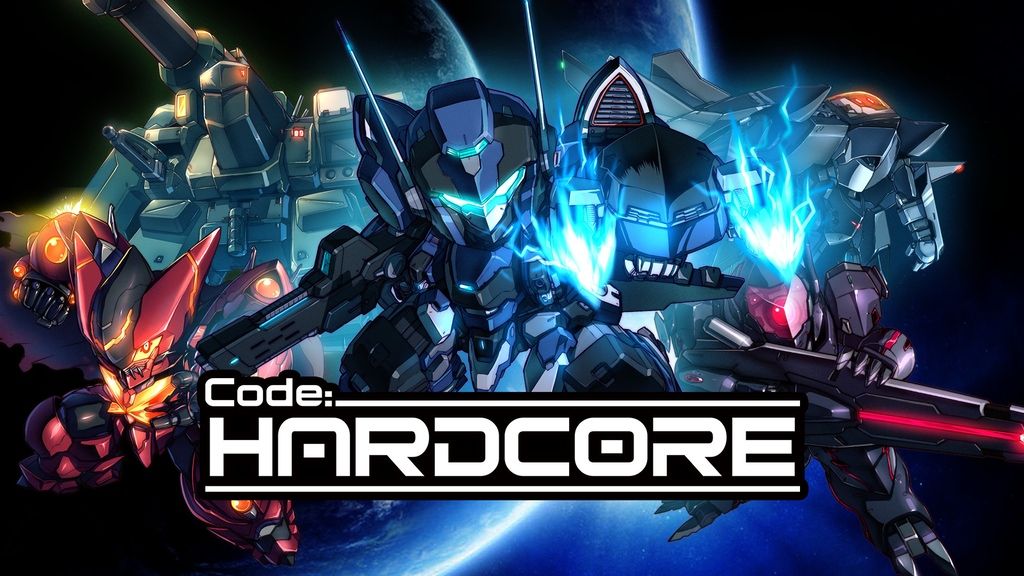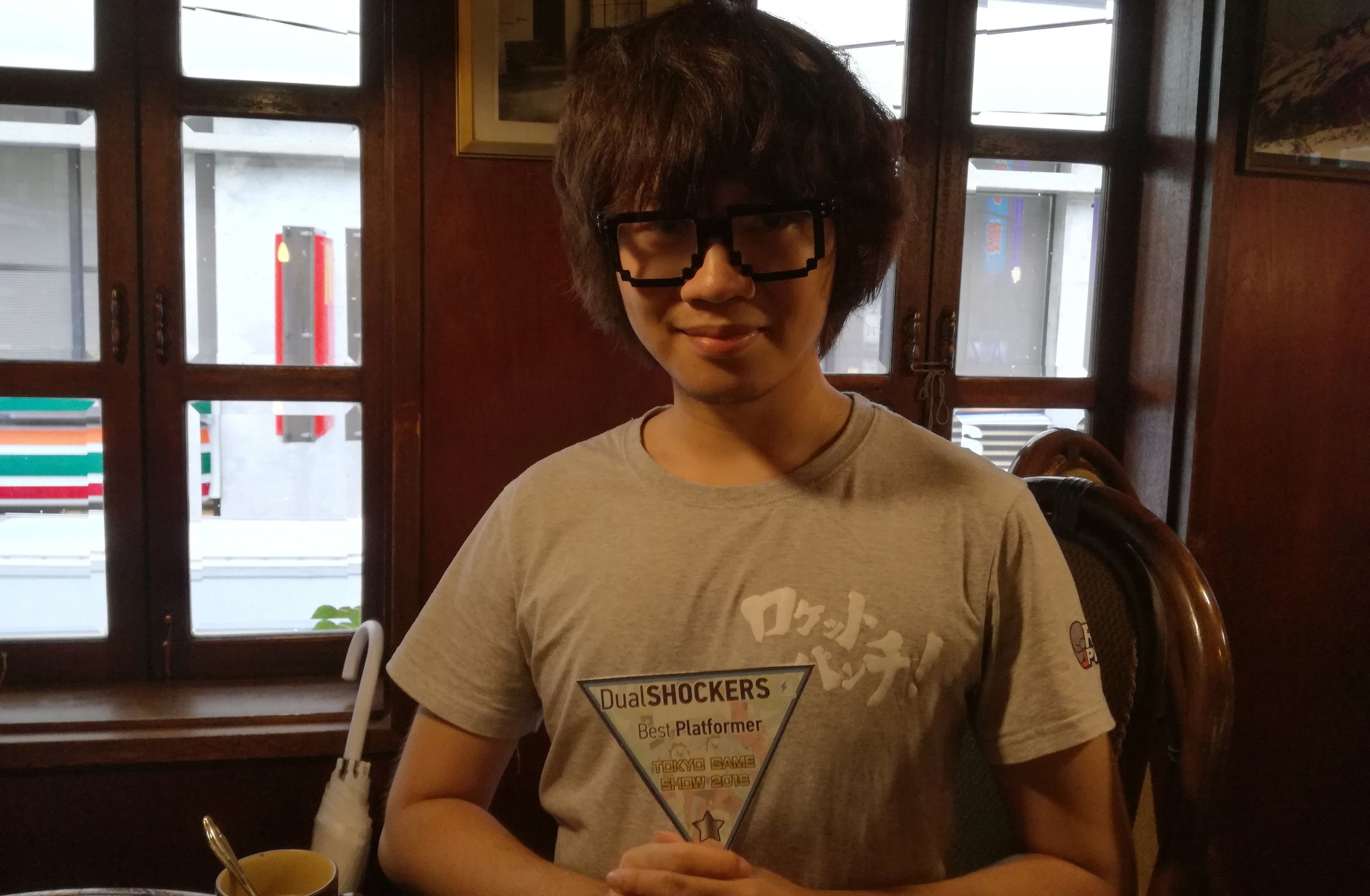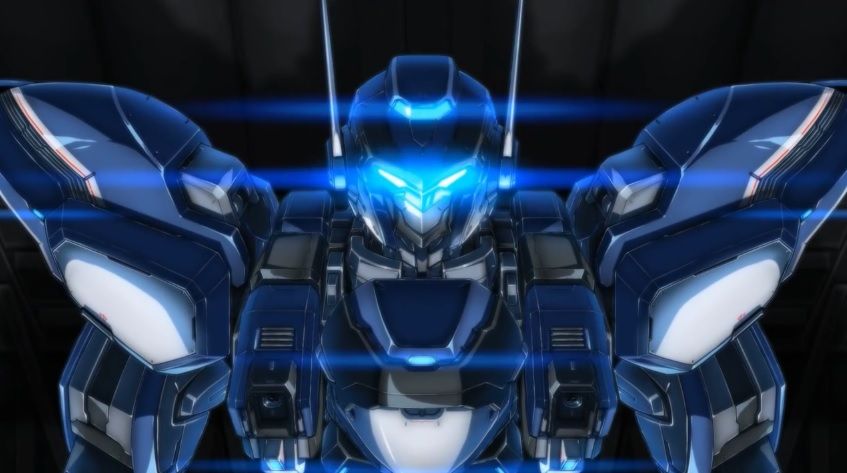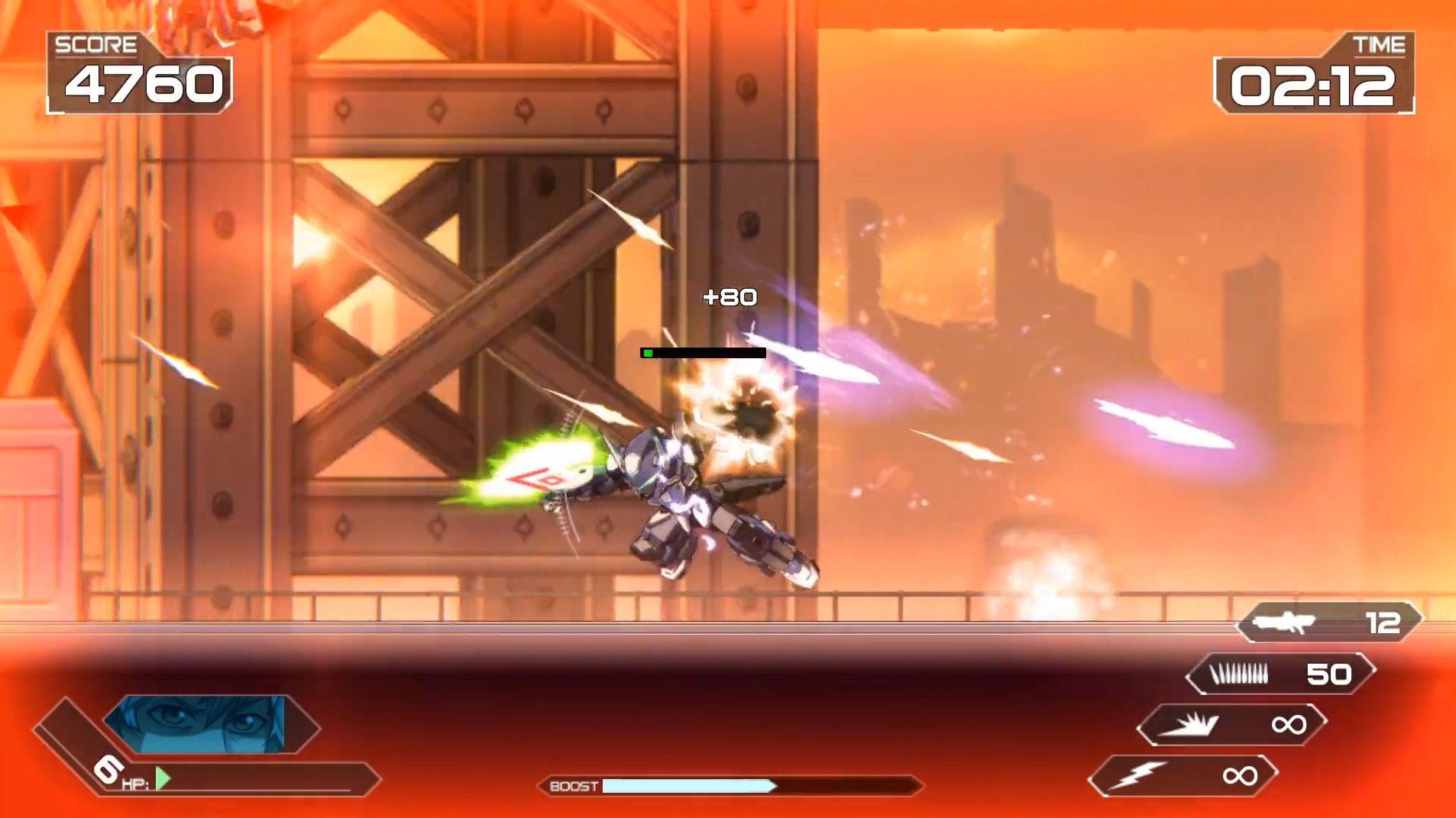Code: HARDCORE is a definitely interesting mecha-themed 2D platformer/shooter, that appeared on Kickstarter a little more than a month ago. Since then, it has earned a nice following and gathered over twice its initial funding goal of $65,536.
The game is developed by the Chinese indie team Rocket Punch led by Director and Producer Louiky Mu, who also takes care of animation. In order to know more about the project, and what sets it apart from other action-platformers, we had a chat with Louiky himself after delivering our Tokyo Game Show Best Platformer and Best Indie Game awards.
Giuseppe: What sets Code: HARDCORE apart from the rest of the mecha games and platformers that you can find on the market nowadays?
Louiky Mu: First of all, we put a lot of efforts in our animation production. The animation is super-sleek, so it makes the game experience very smooth. Also, there aren't many mecha games like this in the market, allowing you to control the robot entirely.
G: Speaking of animation, your game features 2D Skeletons. Could you tell me more about this?
LM: In my younger years, I played a lot of Super Robot Wars, and I really liked the animation. I played and watched, and played and watched, gradually learning about it, getting insight on how to make that kind of animation. The game uses 2D Skeletons to achieve this effect.
G: The animation of the game almost looks like it's not just 2D, but 2.5D or even something like the latest Guilty Gear, but it's actually made with sprites, right?
LM: The game is completely 2D-based, but it's not exactly made with sprites. The animation is created with all the different parts of the characters and mecha. They move, enlarge and shrink independently to create the motion.
G: Yes. I have noticed that each mecha is created with a lot of different parts, could you tell me how many different parts are included in the hero mecha, the one named Thunderbolt?
LM: That's about a hundred different parts all drawn by hand. To design the mecha that appears in the latest trailer it took three developers.
G: How long does it take to design one mecha with all its parts?
LM: About thirty man-days.
G: I noticed that you guys reached a stretch goal for the PS4 version, but I didn't see any for the Xbox One. Is there a reason for that?
LM: It's not a personal reason, but it's simply about cost for the port. We're an indie studio, so porting to even to one platform is already very costly for us. That's why we had to choose one, and it's the one that we think has more mecha fans on it.
G: Is there any chance for the game to be ported to Xbox One, maybe after release?
LM: Maybe. If we find a publisher we might do it.
G: We know very little of the Chinese gaming industry, besides a few big publishers like Perfect World for instance, but how is the indie development scene locally?
LM: It's a bit of a closed market in China. A few years ago, it used not to be very good, but in recent years indie games have started coming out in China, so it's getting better and better. Unfortunately, due to how education is, kids normally feel the pressure from their parents, and don't really get into game development. This is a reason why in past years things weren't as good.
G: Is it difficult to get your hands on a PS4 development kit in China?
LM: Recently Sony started a project to support Chinese indie games, so they picked some indie games they liked and provided the developers with development kits.
G: When you started developing Code: Hardcore, did you immediately think that you wanted to release it in the west, or you just wanted to release it in China, and the idea of a worldwide release came later?
LM: Actually we don't really want to release it in China, because the game is more suitable for the western market. It's difficult to promote it, so we really wanted to focus on the western market, like North America and Europe, but we just found out that we have a lot of fans from Japan too. That's why we're thinking to release the game for the Japanese market as well.
G: How was the reception from Japanese gamers at Tokyo Game Show?
LM: They were really eager, because for almost ten years we haven't see any new kind of mecha games. They really wanted something new.
G: There's certainly some inspiration from Super Robot Wars in your game, but you also mentioned Call of Duty. In which way did the COD series inspire Code: HARDCORE?
LM: In the new single player mode that we'll showcase soon, we'll implement camera wark inspired by Call of Duty. In many 2D platformers like Castlevania or Megaman dialogue and storytelling are static. In games like Call of Duty, it's not like you're just watching a movie, but you're actually inside the movie. Buildings explode and people die around you, and you feel like you're inside the scene. We want to prove that this is possible in a 2D game as well.
G: Is there any other game you're inspired by besides Metal Slug, Call of Duty and Super Robot Wars?
LM: Actually no, but after we launched the Kickstarter. we received comments saying that our game seems inspired by Metal Warriors for the Super Nintendo. The ejection of the pilot is kind of like Titanfall.
G: I did notice that the pilot can leave his robot during gameplay. What's the utility in doing that?
LM: At the moment we have a mobile rocket launcher, but in the future you'll be able to plant explosives, activate traps, and even hack into other mecha or repair yours.
G: Do you have any idea of the length of the single player campaign?
LM: We plan to have six to ten stages. It's not a super-long game, but it will be very fancy.
G: Do you have any final message for our readers?
LM: Please support us to increase the number of mecha games in the world!
Code: Hardcore is currently on Kickstarter, and if you want to contribute to its creation, you can still pledge here. Keep in mind that you have only 19 hours left from the publication of this article, so you may want to hurry.
[Interpretation during the interview by: Hui "Whiplus" Wang]




